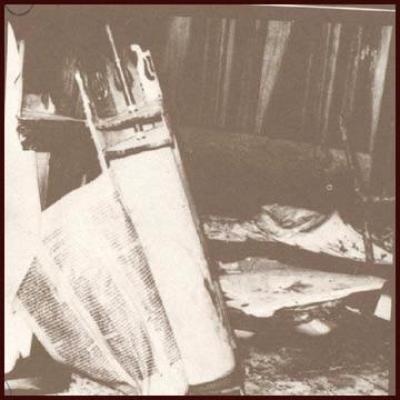
This Day in Jewish History 1967: Tunisians Reject Leader's Moderation, Riot Against the Jews

This Day in Jewish History 1967: Tunisians Reject Leader's Moderation, Riot Against the Jews
Habib Bourguiba advocated a rare pragmatism towards Israel and apologized on behalf of the people after the Six-Day War riots, but the Jews took the hint, and left.
June 5, 1967, the first day of the Six-Day War, was also a decisive day for Tunisian Jewry. Although that day’s anti-Jewish riots did not result in a loss of life, and even the extent of property damage was limited, they accelerated a process of exodus from Tunisia, which in 1948 had had a Jewish community of 105,000.
Almost overnight, a community that felt respected and relatively secure became uncertain that there really was a place for it in Tunisia.
Pragmatic towards Israel
Unlike other Arab and Muslim states, which effectively expelled their Jews in the period surrounding Israel’s establishment, Tunisia went to some lengths to keep its Jews from leaving. There were several waves of departures, but they had more to do with the overall policies of the revolutionary government of Habib Bourguiba than with explicitly anti-Jewish actions.
Bourguiba (1903-2000), who became president when Tunisia was granted independence from France, in 1956, was a benign dictator who was determined to modernize the economy and society. Among other moves he eliminated the Ottoman-era system that gave significant powers of self-rule to protected religious communities and dissolved the rabbinical courts. He also ordered the unification of the country’s network of Jewish organizations into a single “Jewish Religious Council,” whose members he appointed. And, under the pretext of slum clearance, the Jewish Quarter in Tunis was bulldozed under.
Though he reduced Jewish autonomy on one hand, he allowed Jewish organizations to operate freely in the country, encouraging aliyah in the two years prior to the Six-Day War, Bourguiba had seen relations with the other Arab states, in particular with Nasser’s United Arab Republic (Egypt), deteriorate, because of what was perceived as his conciliatory attitude toward Israel. In February 1965, he took off on a tour of the eastern Mediterranean states, in which, while he expressed support for the Palestinians, he also preached for a policy of realism: He did not believe the Arab world should go to war against Israel, and he hoped for a peaceful solution to the conflict, one with “neither victor nor victim."
The leader stands by the Jews
Bourguiba’s approach was not adopted by his Arab brethren, and Nasser especially was determined to characterize him as a Western lackey and traitor to the Arab cause. There were even violent demonstrations in Cairo against Tunisia, and an attack on its embassy.
According to historian Yaroslav Bilinsky, the Tunisian people supported Bourguiba’s approach, at least tacitly. Until June 5, 1967, that is. That afternoon, thousands of residents of Tunis began a rampage, directed mainly against the city’s Jews.
Israeli soldiers celebrate their victory in the Six Day War, perched on half-tracks, 36 hours after the war began, June 8, 1967. Meanwhile, Tunis was rocked by anti-Jewish riots.Gamma-Keystone via Getty Images
In total, about 100 Jewish-owned businesses attacked and looted. A number of cars were overturned as well, and the Great Synagogue, on Tunis’ Ave. de la Liberte was ransacked and set afire. Rioters called out to “throw the Jews into the sea” and to burn them. Also attacked were the British and the American embassies.
The rioting lasted up to six hours, during which time, the police apparently took little action to bring it to an end. It was said that Bourguiba himself was only told about the violence that evening.
On the evening of June 5, the president appeared on national radio and TV. In the main, he spoke about Tunisia’s solidarity with its Arab brethren in the war, and its readiness to provide logistical support and even send forces to the front – promises that became irrelevant when the war ended after six days. At the same time, however, he condemned the idea of taking anger with Israel out on Tunisia’s Jews. He referred to the culprits as “irresponsible fanatics who deserve the gallows,” and committed to bringing them to justice.
The following day, the Tunisian government formally apologized to the Jewish population. Within days, 54 demonstrators – all young men under the age of 30 -- were arrested, and both the national police chief and the interior minister were relieved of their responsibilities. In a trial held at the end of July, all of the defendants were found guilty, and sentenced to prison terms up to 20 years.
Despite the statements and measures, which included repair of the damaged properties and compensation, the country’s Jews took the hint and began departing in large numbers. If in mid-1967, Tunisia’s Jews numbered 23,000, within a year, no more than 8,000 remained in the country.
David B. Green
Haaretz Columnist
read more: http://www.haaretz.com/jewish/this-day-in-jewish-history/1.722832?utm_so...
- Vous devez vous identifier ou créer un compte pour écrire des commentaires

Commentaires récents
il y a 13 semaines 1 jour
il y a 19 semaines 4 jours
il y a 21 semaines 2 jours
il y a 28 semaines 5 jours
il y a 31 semaines 6 jours
il y a 45 semaines 6 jours
il y a 48 semaines 3 heures
il y a 48 semaines 1 jour
il y a 1 année 6 jours
il y a 1 année 1 semaine